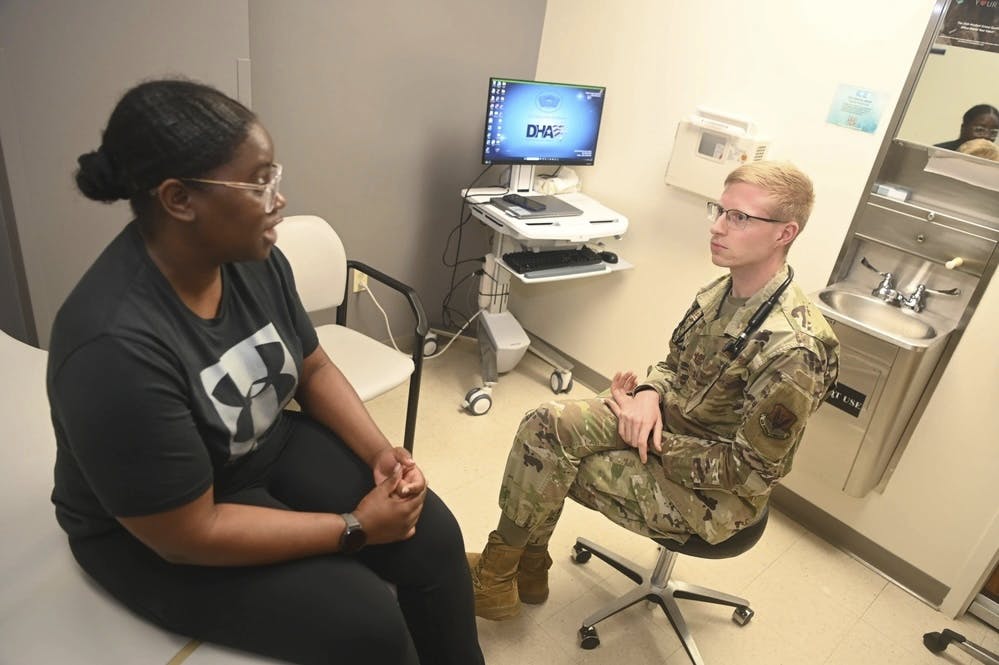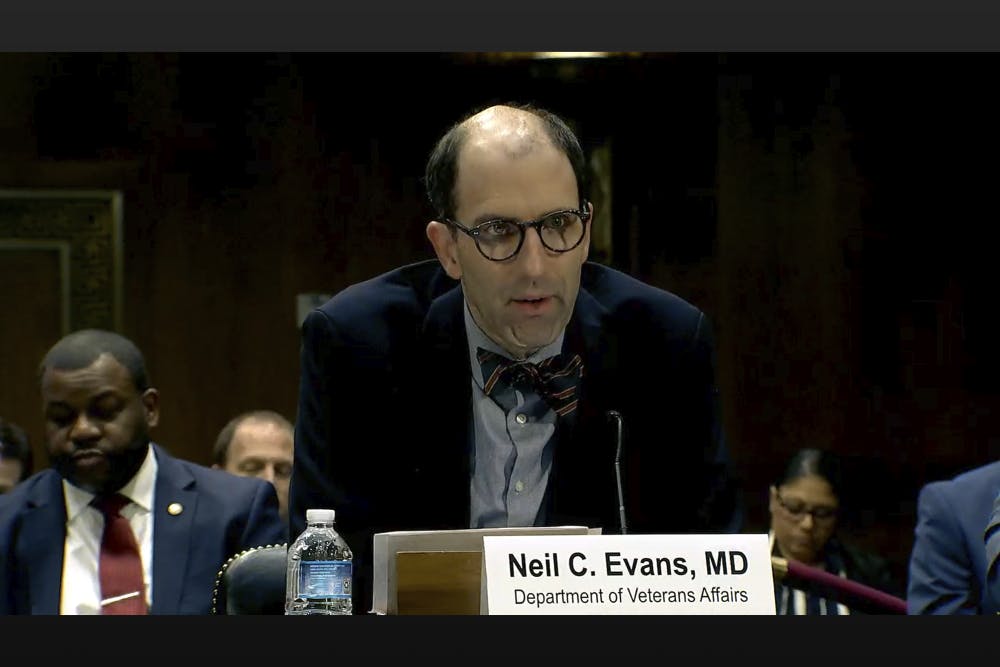Leaders Detail How Health Policy is ‘Driven by Anecdotes’
Two prominent government officials shared support for ONC’s proposed rules and patient access to their data.

Government officials are emphasizing the importance of electronic patient access to their health care records and of moving interoperability standards forward through personal anecdotes of their own mishaps with current health care practices.
“The inadequacies of our current system aren’t just a theoretical challenge,” Department of Health and Human Services Secretary Alex Azar said during a morning keynote at an Office of the National Coordinator for Health IT annual meeting held Jan. 27.
Azar highlighted how a lack of patient-choice and interoperability between disparate health systems diminished the quality of care he and others may have received. He detailed a time he visited three providers that were part of the same health system yet each had separate records that did not communicate with each other, leading to more effort Azar had to put into his own care plans.
“Earlier this month, I spent hours trying unsuccessfully to get access into my health records, and to this date, still have not had my call returned to help me get into them,” he said.
In another instance, his preference for keeping to a particular prescription strength was not incorporated into his record. He was subsequently given a stronger version he had not consented to at another provider.
Congressman Bill Foster voiced similar concerns on the likelihood of missing or faulty EHR data increasing medical errors and patient harm.
“Thousands of Americans have died due to getting the wrong drug to the wrong patient or due to the incorrect or incomplete electronic medical records, all arising from the inability to simply and correctly merge health records on different systems,” he said.
Foster cited a recent Johns Hopkins University study that calculated more than 250,000 deaths per year were due to medical errors.
“While our data collection on medical errors remains not very reliable, it’s reasonable to assume that a unique patient identifier would have helped save some significant fraction of these lives,” he said.
Still, Foster noted the power of voicing peoples’ experiences when it comes to enacting policy change. “One of the things I’ve come to terms with is that health care policy is not driven by statistics — it’s driven by anecdotes.”
Foster recounted the story of a patient who came to an emergency room and immediately went into cardiac arrest. “They pulled down the electronic health record for the wrong patient,” tragically leading to an incorrect do-not-resuscitate order.
Congress hopes to address incorrect patient matching with ONC’s assistance.
Specifically, the Omnibus for the Departments of Labor, Health and Human Services, and Education for fiscal year 2020 gives “explicit instructions to ONC to report to Congress the current state-of-the-art inpatient matching and … recommend action to increase the likelihood of an accurate match of patients to their health care data,” Foster said, quoting from the bill.
These may include linking patients to their email addresses, using biometrics or other novel approaches to combat the risk of patient misidentification.
Moreover, empowering people with health data that is accurate, accessible and secure remains HHS’ top priority.
“Patients need and deserve control over their records,” Azar said. “Interoperability is the single biggest step we can take toward that goal.”
This is a carousel with manually rotating slides. Use Next and Previous buttons to navigate or jump to a slide with the slide dots
-

IHS Prepares to Deploy PATH EHR at Pilot Sites in 2026
IHS targets PATH EHR pilot in 2026, emphasizing governance, collaboration and interoperability as key pillars of the modernization strategy.
4m read -

FEHRM CTO Targets Two-Year Cloud Migration for Federal EHR
Lance Scott touts new EHR tech advancements, including cloud migration, expanded data exchange and AI integration to improve care delivery.
4m read -

VA Plans Future EHR Deployment on Facility Relationships
VA’s EHR program is expected to restart in 2026 and will plan deployment based on pre-existing relationships between facilities to drive interoperability.
21m watch -

Federal EHR Leaders Eye Ambient Dictation, Interoperability
Officials from DOD and VA said they are exploring new EHR features such as functionality in offline status and interoperability.
5m read -

VA Plans to Rollout Its EHR in 'Waves,' Program Chief Says
VA takes a new approach to its electronic health record deployment, following a proposed $2 billion White House funding boost.
4m read -

Data Modernization for Federal Health Enterprise
Technology and modernized data systems are opening up new frontiers for health care clinicians, agencies and patients.
37m watch -

HIMSS: AI's Role in Health Care Innovation, EHR Compliance
Federal agencies and industry partners are increasingly exploring AI use to improve health care.
13m watch -

HIMSS: HL7 Standards Boost Health Data Interoperability
For over 30 years, Health Level Seven International (HL7) has set the standard for electronic health information worldwide.
13m watch -

DEA Highlights Industry Role to Combat Rising Prescription Fraud
Rising trends in cyber fraud require electronic health record companies to implement stronger security measures.
3m read -

APIs Are Supporting Community Care Interoperability at VA
The agency is seeing success with initiatives like its Veterans Interoperability Pledge and USCDI standards in supporting veteran health care.
7m read -

HIMSS: Unlocking Interoperability to Make Health Data Work for Everyone
The Sequoia Project's CEO shares how she's thinking about the role of data standards development toward EHR interoperability.
8m watch -

HL7’s FHIR Foundry Speeds Up Health Data Standards Adoption
HL7's platform offers an opportunity to test standards, streamlining interoperability as federal agencies push for adoption of FHIR APIs.
4m read
















